In the 1950s, scientists threw a rat in a cage and gave it two options— a bottle of water, and a bottle of drugs. The rat, once he’d had a hit of that sweet sweet morphine, repeatedly chose drugs over water— a chemical high over survival. The experiment was conducted several times, and every single time, the rat went back to the drugs again and again, slowly killing himself, and (because rats are quite intelligent) probably knew it.
And the scientists went, “See?! We knew drugs were bad! They have the power to kill! To warp the minds of perfectly healthy creatures! This must mean that the chemicals in drugs are turning people into crazy, suicidal fiends! Addiction comes from drugs! Shame on the people who choose these evil drugs!”
Twenty years later, a psychologist named Bruce Alexander spotted a glaring flaw in the rat experiments. The rats had been referred to as perfectly healthy before being introduced to cocaine and heroin, when, actually, the rats were only physically healthy; they had to have been under immense emotional distress in those isolated cages. Rats are very social and emotional creatures who thrive amongst their little friends and family. How do we know those rat subjects weren’t turning to drugs and death because of loneliness and severe depression???
With this epiphany, Alexander tried the experiments again, but this time, instead of a cage, he built a rat utopia. He and his colleagues called it “Rat Park” — a place where their poor involuntary participants could run, play, make love, and live their cute, furry little lives to the fullest.
And to the shock of the scientific community, the citizens of Rat Park chose water over drugs. Every single time. Researchers even moved some already addicted rats from isolated cages into Rat Park, and many of those rats overcame their addictions, seemingly recovered thanks to the presence of their loved ones, re-reaching for the beauty of life over chemical dopamine.
This Rat Park model helps paint why human beings living in less than ideal circumstances, or underprivileged communities, might more easily find themselves terrorized by a crippling addiction. My first reaction to Rat Park— as someone obsessed with addiction’s complex and baffling nature— was, Aww, how sweet! They just needed the safety of their little rat friends and family members! Love is stronger than drugs!
My second reaction, as the daughter— the family member— of a man whose addiction killed him, was, Wait. What the fuck!
My dad grew up with racial and financial privileges, and with supportive family and friends. From the outside, my dad had a Rat Park. But he left it behind for drugs. Why??? I spent my whole life offering him a closer relationship, one he frequently claimed to want. But my efforts never compared to the herculean force pulling him away. If safety, community and love were the solution, why didn’t they work for my one irreplaceable father?
Digging deeper, I found Johann Hari’s take; the results of Rat Park weren’t just about the presence of those rat buddies. The magic ingredient was in the social connections between them. Hari claims that “if you can’t bond— because you’re traumatized, isolated or beaten down by life— you will bond with something that will give you some sense of relief.” Hari turned on a light switch in my head with the words, “you can’t bond because you’re traumatized.”
In addition to studying addiction, I’m knee-deep in trauma research. And I’ve learned that painful and destabilizing events, especially in childhood, can rewire our brains, specifically the area built to love and receive love from others. I would never claim that early trauma irreparably damages us. But it can leave us in desperate need of support and correction, without which we become vulnerable to a type of emotional decay. Trauma can sever limbs, restricting our ability to effectively reach others. Nourishing ties cut like still-necessary umbilical cords.
Bonds. The ability to deeply connect. That was absolutely what my dad was lacking. He had a Rat Park, but he may not have had the capability to sense it. What’s a Rat Park if you can’t feel its magic.
People who struggle with addiction are often broken up into two categories— the ones who “make it” and the ones who don’t. But I don’t believe addiction could ever lend itself to such a simple, concrete definition. I’m actually skeptical of anyone who identifies as an addiction expert because of addiction’s spiritual and amorphous nature. Though I’ve spent thirteen years in 12-step, and am on my way to a Master’s degree in the field, I’ll never pretend I’ve fully grasped addiction. I’ll only share my ever evolving opinion and personal experiences. I have been passionate about addiction for as long as I can remember. And, today, I believe its severity isn’t binary. It’s a spectrum.
Through a graduate school assignment, I was given an opportunity to look at my own relationship to unhealthy behaviors. Wanting to gain a new perspective, however minute, I decided to try giving up something I really did not want to— something that felt unfair for me to have to go without— desserts. Can you imagine?
I’ve always described myself as someone with a sweet tooth, but I’d never quantified my chocolate intake before. And once I went cold turkey, I realized that I was someone who ate chocolate at least once a day. Usually more. When I abruptly gave it up, I noticed the exact times of day I’d instinctively reach for the fridge, where I keep my little bucket of cold, bite-sized treats. My cravings peaked during the more stressful parts of my day. And always right before bed. Can’t wind down and relax without my lil’ chocolate first. Oh… Huh… I’ve really been using sweets to soothe haven’t I? What a discovery.
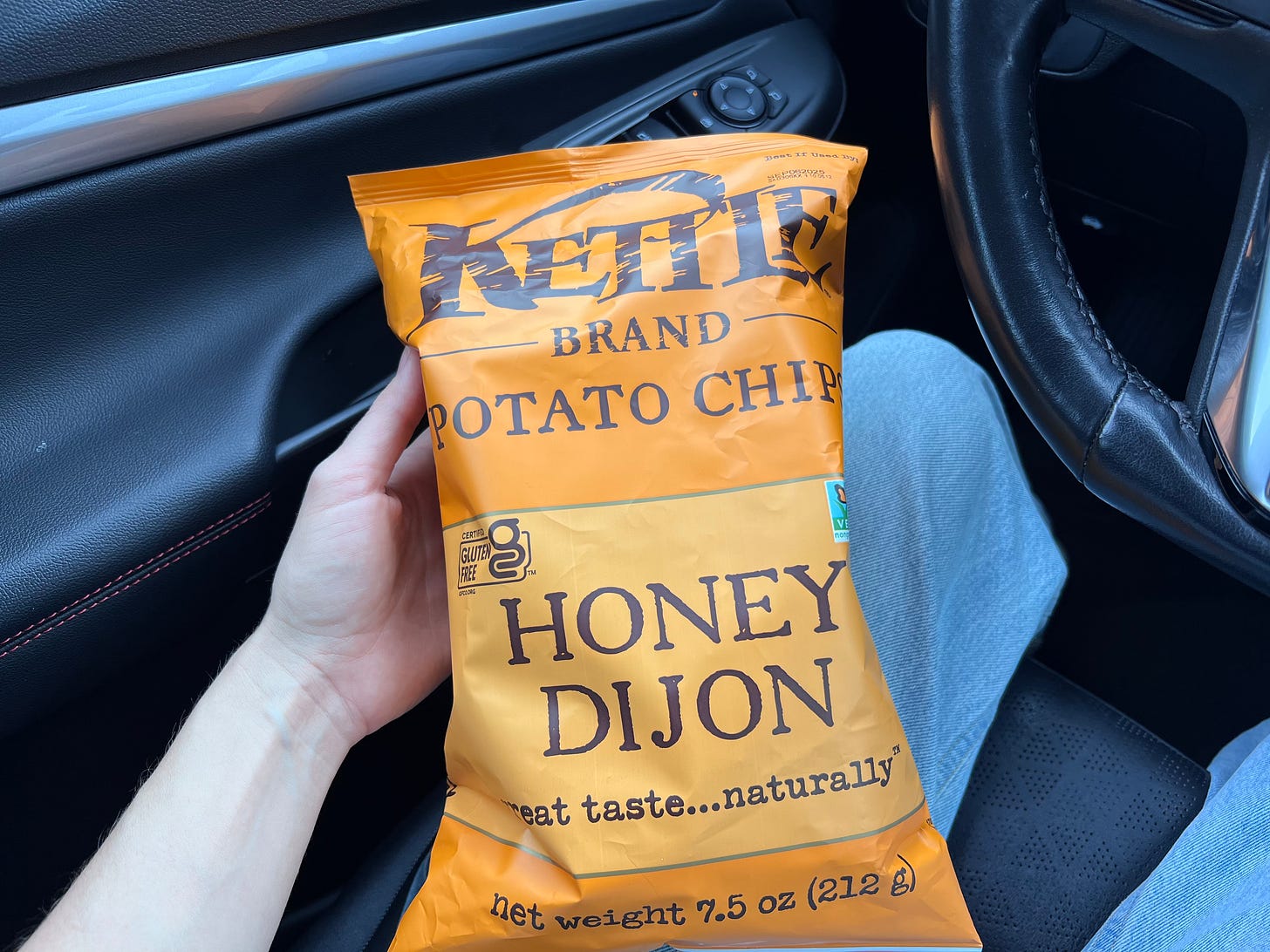
More fascinatingly, when I gave up desserts, my alcohol consumption went up. So did my social media usage. Actually my screen time really went up. I don’t even want to tell you by how much. And it did not feel good. All the scrolling made me sick. I wanted to cut back. I tried to cut back. But somehow I kept finding myself hunched over that fucking phone like a possessed troll. It impacted my work, my time with my toddler. I was quickly checking off every box meeting the criteria for addiction in the Diagnostic and Statistical Manual of Mental Disorders, literally!
I had no idea that— all this time— chocolate had been keeping me from spiraling. I felt shame. Dependency. Unable to change my behavior. I thought about apples not falling far. I wondered if parts of me were him.
My confrontation with my own compulsive behaviors had me thinking about all the ways I have a hard time connecting with my own rat community. How good am I really at giving time and deep attention to human beings? I thought about the traumas in my past that may have fucked with my primal ability to grow stronger bonds or build intimacy. The same week, I stumbled upon a quote by Dr. Judith Herman, a leading trauma expert, claiming that one cannot possibly heal from a trauma in isolation. It was more proof that the medicine really is connection. If I’m ever struggling, and trying to figure it out by myself, I’m setting myself up to fail. It’s why a good therapist can be so transformative. And why the wrong one can be so disastrous. Same thing with a good 12 step meeting or support group, or a bad one run by abusive culty vibes. Increasing real, two-way, healthy connections with human beings is always, always the answer.
With this adjustment in my perspective, I suggested that Jon and I invite a couple friends over for a “connection hang.” We all played The Mind while listening to the soundtrack to Succession (a combo I can’t recommend enough). Sharpening my attunement skills with friends was so satisfying that I hunted for more. The next day I met in-person for the first time with a talented writer/friend I met through Instagram. Watching her image turn from screen to skin was an absolute delight. So the same week, Jon and I had a friend over and— oh! how about we have both his parents and brother over too!— for homemade cappuccinos and bagels. Seeing the whole family fawn over my baby was delicious. The next day, I pushed myself to ditch the usual convenience of my empty home, and took my work to a coffee shop in Echo Park. A place known for being a packed hot spot. I brought my laptop, notebook and three textbooks, squeezing myself in-between two people at the bar. Over the course of two and half hours, I got to know three people and one German shepherd mix. I shared my computer charger with someone who needed it. I was also hit on, and awkwardly rejected them. I was grateful for every interaction, the sweet and the weird, because they were freshening up my people skills, reminding my nervous system that I’m a human being in a world of human beings.
And on my drive home, high off the wise shift in my routine, a car hit me. Grazed me, really. The teensiest fender bender. And because I had a new mission— to collect new faces— I was happy to snag another one. I pulled over and hopped out, eager to interact.
The person who hit me was a guy in his early twenties. He pulled over and exited his car, but he was not happy. He was trembling.
I asked, “You okay?”
He had trouble getting a word out, and finally said, “Yeah, yeah, um.” He then went to study the new scrape on my car.
I added, “Well I’m totally fine. And this scrape looks like it might just be paint.”
He held his forehead, “That looks like more than just paint. Uh, God.”
He gave off ‘my dad’s gonna kill me when I get home’ energy. So I tried to help.
“All that matters is nobody’s hurt! So it’s all good!”
He then looked at me like I was giving him the creeps, “Why are you being nice? I hit you. It was my fault.”
For some reason, all I could think to say was, “I’m a mom. This is no big deal.”
Who knows what he made of that. But what followed was the best interaction I’d had all week. He was grateful I wasn’t raging, and we ended up exchanging phone numbers. We had a lovely text exchange the next few days as he followed up and paid for the repair. I got so much unexpected joy out of showing a young person that not everyone gets out of their car looking for vengeance when they’ve been hit. Not all car accidents are traumatic events. Some people get out of their car completely unharmed physically and emotionally. Some even get out of their car excited to connect with a new face, selfishly just looking to expand and enrich their own Rat Park.
A week of hunting for extra connections brought down my screen time by more than half (!), and significantly increased my motivation— to write, to make out with my husband, to invent new games with my two year old. Win after win after win.
More deserve to win. How do we provide people like my dad more access to the connections crucial for a fulfilling life? Look what we’re up against! I hear so much about how artificial intelligence poses economic threats, but I can’t stop thinking about how I was robbed of connecting with a human at the front desk of my vet’s office when I called to refill my cat’s prescription; an AI bot answered my call instead, swiftly placed my order, and flawlessly answered my follow up question (I accidentally said “thanks so much” before hanging up btw). Society is increasingly cutting the nourishing ties that attach us, and calling it innovation. I worry about how encouraged we are to do things efficiently, i.e. alone. Ordering from Amazon harms workers, but it also deprives you of the handful of interactions you may’ve had taking the subway to a store, asking for help navigating the aisles, or assisting someone in need of guidance as they squeeze into a tight parallel parking spot. Convenience can isolate us, something no human being can afford. It has never been harder to ward off addictions— to substances, to compulsive, self-destructive behaviors.
Johann Hari said the opposite of addiction is connection, which must mean that we can reframe addiction as a less-visible cousin of loneliness. Maybe that awareness can allow us to be a tad softer on those whose drinks we’ve been counting. Maybe we can berate ourselves a little less when, for some ungodly reason, we still haven’t put down the goddamn phone. Hold a face. Hit a car. Or (my personal favorite) share a dessert.
♥


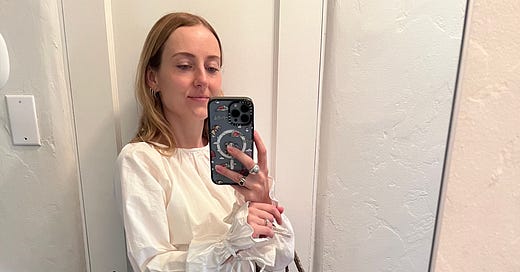



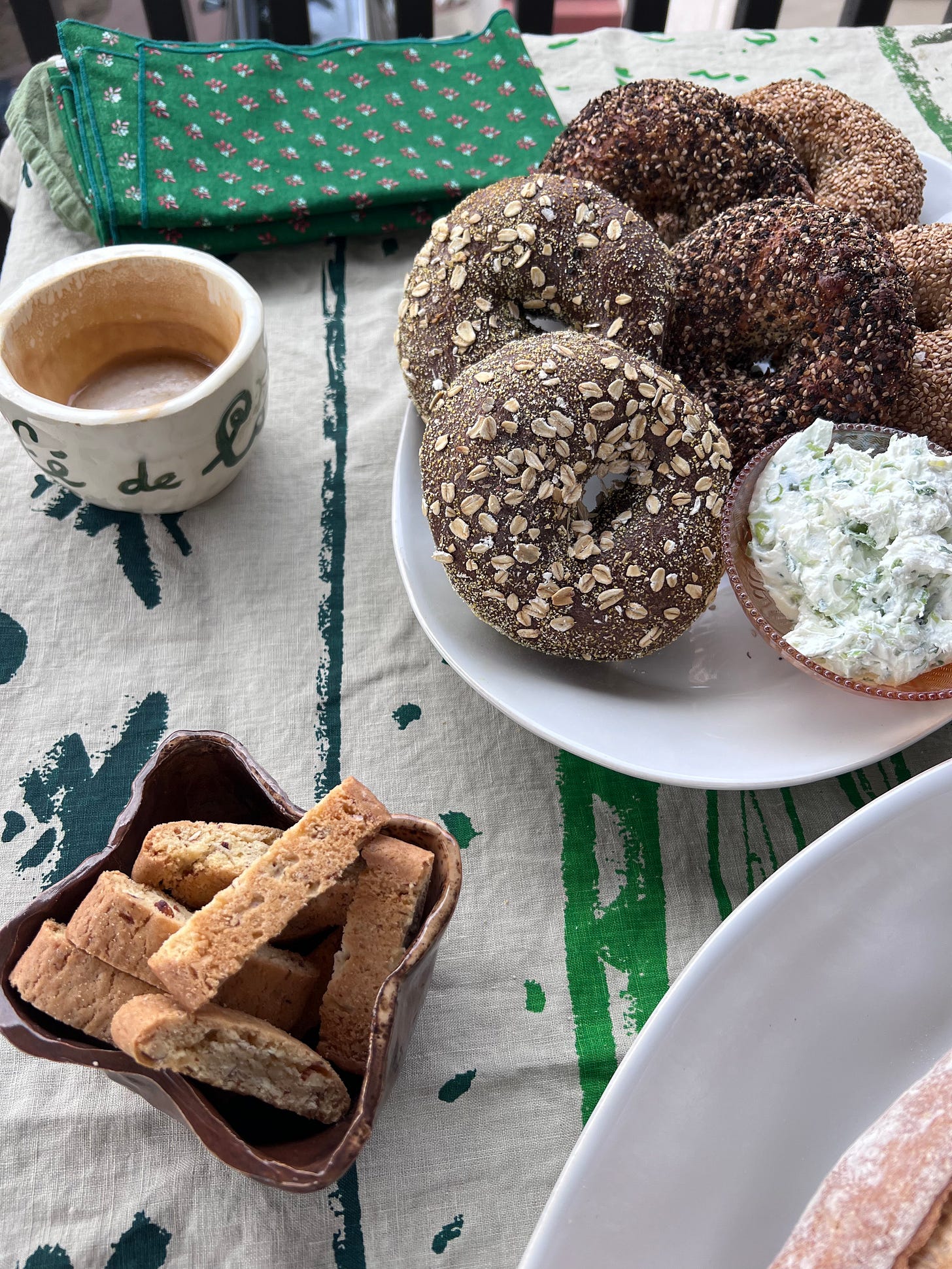
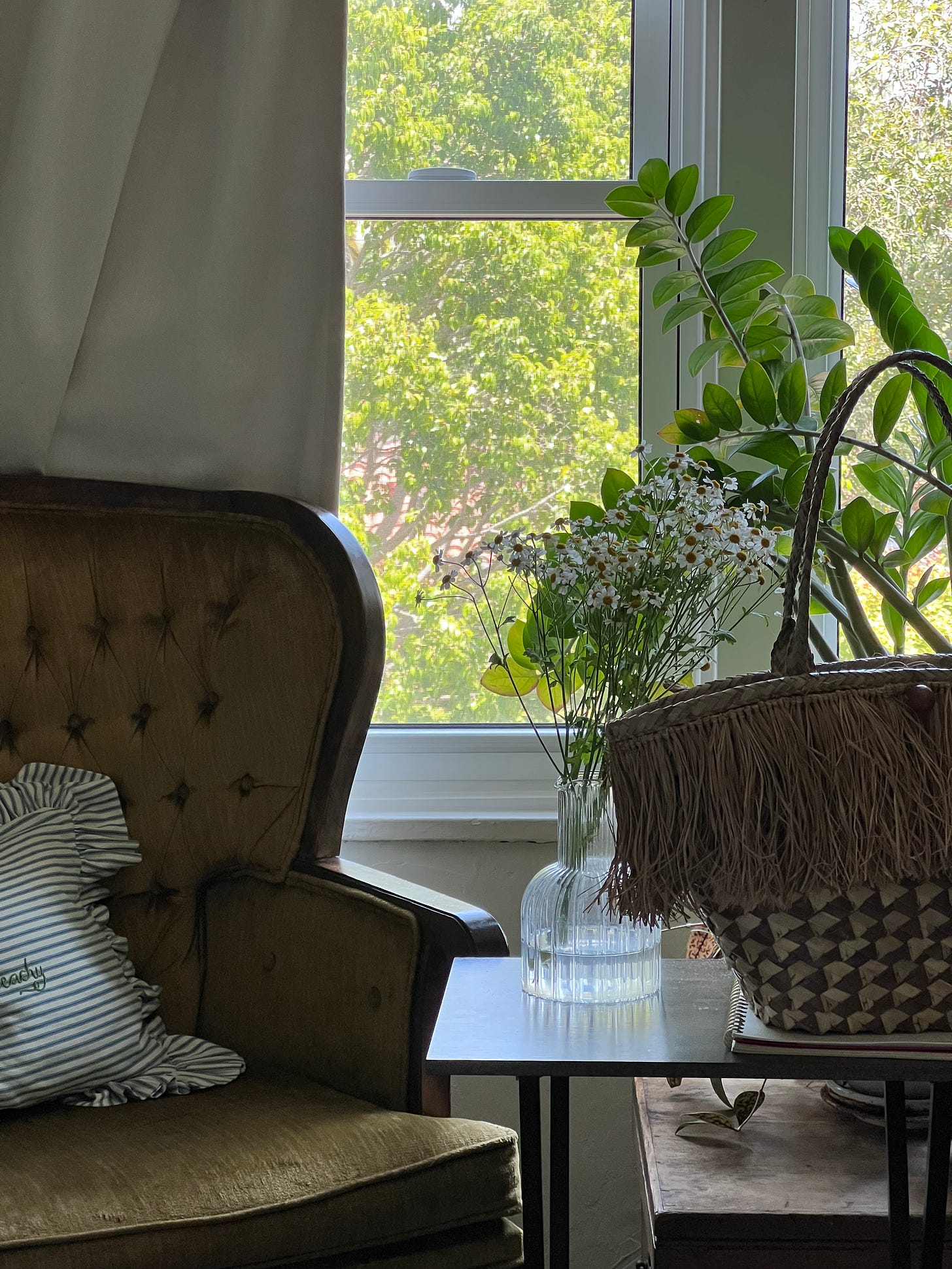
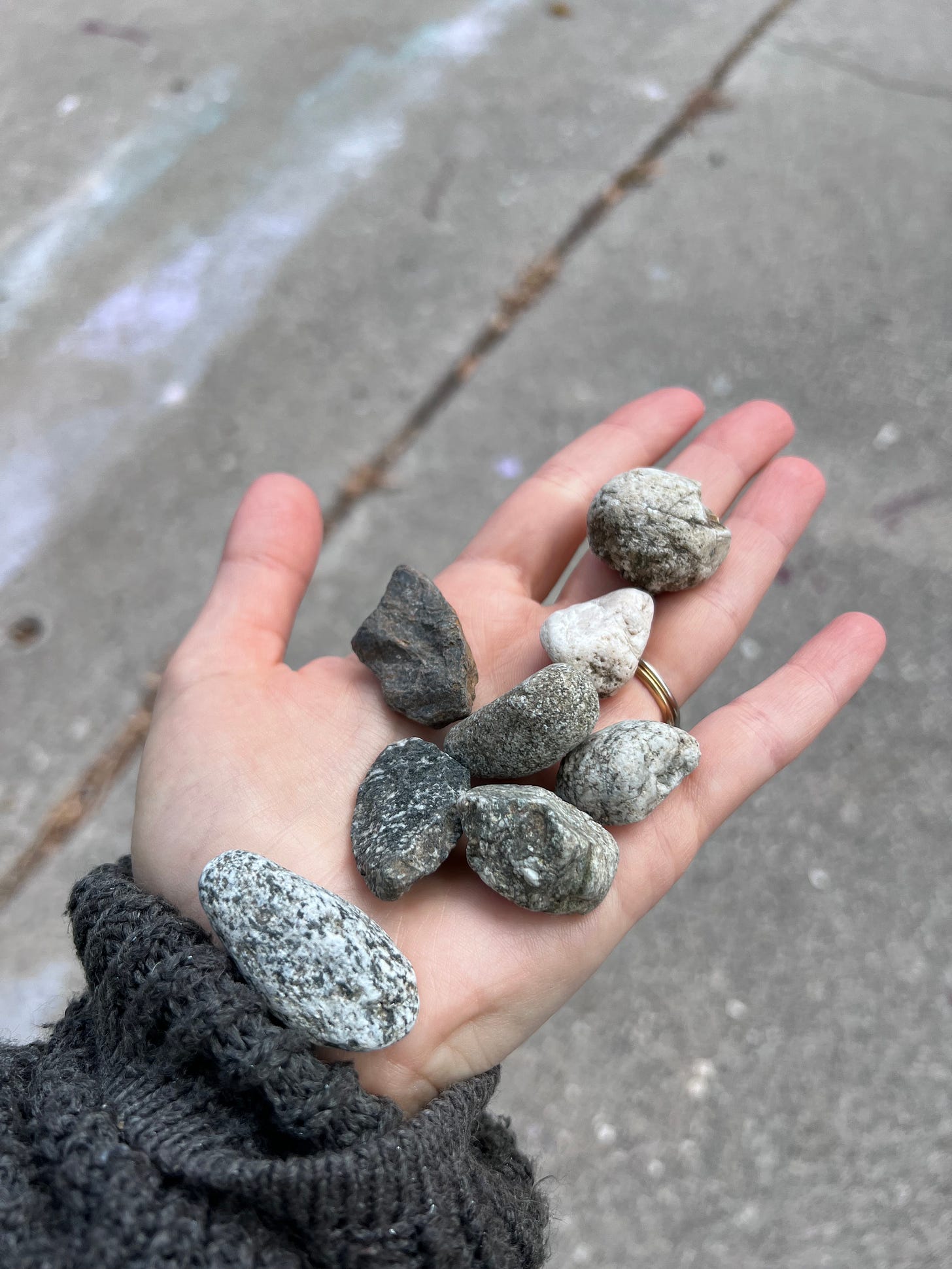
This morning, when my favorite barista hugged me over the counter, my first thought was "the internet could never make me feel this way" (but this came kinda close (; lol)
This is *excellent*—thank you so much for finally discussing this with sense. At first, I was expecting yet another article to tell me that apps are as bad as hard drugs, or, like the crank psychologist Anna Lembke laughably put it, "Instagram is the hypodermic needle of the 21st century." This stuff is so unhelpful, and it displaces the real sources of people's real problems, transferring them to things that are, in themselves, neither good nor bad.
People screaming, "The phones are bad and addictive like drugs," will never take the time to consider that the phones don't exist in a vacuum. The suburbs and rural areas are giant isolating cages and our rat utopias are fast disappearing. It would behoove us to facilitate those connections and build those big, beautiful rat utopias.